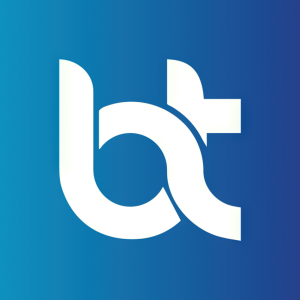BioXcel Therapeutics Announces Completion of Patient Enrollment in Safety Portion of Investigator-Sponsored Phase 2 Relapsed Pancreatic Cancer Trial of BXCL701 in Combination with KEYTRUDA®
Human proof of concept portion of the trial expected to begin in H1 2024; led by Georgetown Lombardi Comprehensive Cancer Center
BXCL701 in combination with checkpoint inhibitor in preclinical studies demonstrated encouraging results in pancreatic cancer
Initial study data expected in 2024
NEW HAVEN, Conn., Feb. 06, 2024 (GLOBE NEWSWIRE) -- BioXcel Therapeutics, Inc. (Nasdaq: BTAI), a biopharmaceutical company utilizing artificial intelligence to develop transformative medicines in neuroscience and immuno-oncology, today announced the completion of patient enrollment in the safety lead-in portion of the investigator-sponsored Phase 2 trial of BXCL701 in combination with KEYTRUDA® (pembrolizumab) in previously treated metastatic pancreatic ductal adenocarcinoma (PDAC). BioXcel Therapeutics, through its OnkosXcel Therapeutics immuno-oncology subsidiary, is collaborating with Georgetown Lombardi’s Dr. Louis M. Weiner, director of the cancer center, and Dr. Benjamin Weinberg, the study’s principal investigator. BioXcel Therapeutics and Merck & Co. are providing BXCL701 and KEYTRUDA for the trial, respectively.
The trial is evaluating BXCL701, an investigational, oral innate immune activator designed to inflame the tumor microenvironment and thereby augment the activity of checkpoint inhibitors. As part of the trial’s safety lead-in, the first six patients have been enrolled and will be observed for a six-week safety window period. The trial is then expected to enroll approximately 39 patients in its efficacy phase in a Simon 2-stage single-arm, open-label design [19 + 20 patients]. The primary objective is to determine the 18-week progression-free survival rate. Patients will be monitored radiographically and by tumor markers for response assessment. Tumor biopsies and blood samples will also be collected over the course of treatment to better understand the mechanism of how the drug combination works in humans. The human proof of concept portion of the trial is expected to start in H1 2024.
“Pancreatic cancer represents a significant unmet medical need, ranking as the third-leading cause of cancer deaths1, yet remains an exceptionally difficult cancer to treat. No novel therapies have emerged in decades, and overall survival for advanced disease has not improved in over 10 years,” said Dr. Weiner. “Building on results from the preclinical work conducted in our lab, we are excited to evaluate BXCL701 in this important trial as a potential treatment for advanced pancreatic cancer.”
The American Cancer Society estimates that, in 2024, approximately 66,440 cases of pancreatic cancer will be diagnosed in the United States.2 Few therapeutic options are available for patients with this indication, which has a five-year survival rate of
“The major challenge in immuno-oncology is cold tumors and their lack of sensitivity to checkpoint therapy,” said Vincent J. O’Neill, M.D., Executive Vice President, Chief of Product Development and Medical Officer of BioXcel Therapeutics. “We have already demonstrated encouraging response rates and survival data in two aggressive forms of prostate cancer: small cell neuroendocrine cancer (SCNC) and adenocarcinoma, as highlighted in our Key Opinion Leader Day presentation last year. This Phase 2 trial marks the third cold tumor setting where we are testing BXCL701 in combination with KEYTRUDA. Based on encouraging preclinical results, we look forward to the results from the human proof of concept efficacy trial evaluating BXCL701 in combination with pembrolizumab in patients with PDAC.”
About BXCL701
BXCL701 is an investigational, oral innate immune activator designed to initiate inflammation in the tumor microenvironment. Approved and experimental immunotherapies often fail to address cancers that appear “cold.” Therefore, BXCL701 is being evaluated to determine if it can render “cold” tumors “hot,” making them more detectable by the adaptive immune system and thereby facilitating the development of a strong anticancer immune response. OnkosXcel Therapeutics’ preclinical data support BXCL701’s potential synergy with both current checkpoint inhibitors and emerging immunotherapies directed to activate T-cells. BXCL701 is currently being developed as a potential therapy for the treatment of aggressive forms of prostate cancer and advanced solid tumors that are refractory or treatment naïve to checkpoint inhibitors. BXCL701 has received Orphan Drug Designation from the U.S. Food and Drug Administration in four indications: acute myelogenous leukemia, pancreatic cancer, stage IIb to IV melanoma, and soft tissue sarcoma. An 800+-subject clinical database, with data collected by the Company and others, supports the ongoing development of BXCL701.
About BioXcel Therapeutics, Inc.
BioXcel Therapeutics, Inc. (Nasdaq: BTAI) is a biopharmaceutical company utilizing artificial intelligence to develop transformative medicines in neuroscience. Its wholly owned subsidiary, OnkosXcel Therapeutics, is focused on the development of medicines in immuno-oncology. The Company’s drug re-innovation approach leverages existing approved drugs and/or clinically validated product candidates together with big data and proprietary machine learning algorithms to identify new therapeutic indications. For more information, please visit bioxceltherapeutics.com.
Forward-Looking Statements
This press release includes “forward-looking statements” within the meaning of the Private Securities Litigation Reform Act of 1995. We intend such forward-looking statements to be covered by the safe harbor provisions for forward-looking statements contained in Section 27A of the Securities Act of 1933, as amended (the “Securities Act”) and Section 21E of the Securities Exchange Act of 1934, as amended (the “Exchange Act”). All statements contained in this press release other than statements of historical fact should be considered forward-looking statements, including, without limitation, the Company’s expected timing, trial design and data results for clinical trials of BXCL701 with pembrolizumab and potential benefits from treatment with BXCL701. When used herein, words including “anticipate,” “believe,” “can,” “continue,” “could,” “designed,” “estimate,” “expect,” “forecast,” “goal,” “intend,” “may,” “might,” “plan,” “possible,” “potential,” “predict,” “project,” “should,” “target,” “will,” “would” and similar expressions are intended to identify forward-looking statements, though not all forward-looking statements use these words or expressions. In addition, any statements or information that refer to expectations, beliefs, plans, projections, objectives, performance or other characterizations of future events or circumstances, including any underlying assumptions, are forward-looking. All forward-looking statements are based upon the Company’s current expectations and various assumptions. The Company believes there is a reasonable basis for its expectations and beliefs, but they are inherently uncertain. The Company may not realize its expectations, and its beliefs may not prove correct. Actual results could differ materially from those described or implied by such forward-looking statements as a result of various important factors, including, without limitation, its dependence on the success and commercialization of IGALMI™, BXCL501, BXCL502 BXCL701 and BXCL702 and other product candidates; its lack of experience in marketing and selling drug products; the risk that IGALMI or the Company’s product candidates may not be accepted by physicians or the medical community in general; the failure of preliminary data from its clinical studies to predict final study results; failure of its early clinical studies or preclinical studies to predict future clinical studies; its ability to receive regulatory approval for its product candidates; its ability to enroll patients in its clinical trials; undesirable side effects caused by the Company’s product candidates; and its novel approach to the discovery and development of product candidates based on EvolverAI , as well as the other important factors discussed under the caption “Risk Factors” in its Quarterly Report on Form 10-Q for the quarterly period ended September 30, 2023, as such factors may be updated from time to time in its other filings with the SEC, which are accessible on the SEC’s website at www.sec.gov. These and other important factors could cause actual results to differ materially from those indicated by the forward-looking statements made in this press release. Any such forward-looking statements represent management’s estimates as of the date of this press release. While the Company may elect to update such forward-looking statements at some point in the future, except as required by law, it disclaims any obligation to do so, even if subsequent events cause our views to change. These forward-looking statements should not be relied upon as representing the Company’s views as of any date subsequent to the date of this press release.
Contact Information
Corporate
BioXcel Therapeutics
Erik Kopp
1.203.494.7062
ekopp@bioxceltherapeutics.com
Investor Relations
BioXcel Therapeutics
Brennan Doyle
1.475.355.8462
bdoyle@bioxceltherapeutics.com
Media
Russo Partners
David Schull
T: 858-717-2310
David.schull@russopartnersllc.com
Scott Stachowiak
T: 646-942-5630
Scott.stachowiak@russopartnersllc.com
Source: BioXcel Therapeutics, Inc.
BT BIOXCEL THERAPEUTICS is a registered trademark of BioXcel Therapeutics, Inc.
All other trademarks are the properties of their respective owners.
Copyright © 2024, BioXcel Therapeutics, Inc. All rights reserved.
References
- American Cancer Society: 2024 Estimated Cancer Deaths. https://cancerstatisticscenter.cancer.org/, accessed February 5, 2024
- American Cancer Society: Key Statistics for Pancreatic Cancer. https://www.cancer.org/cancer/types/pancreatic-cancer/about/key-statistics.html, accessed February 5, 2024
- American Cancer Society: 5-year relative survival rates for pancreatic cancer.https://www.cancer.org/cancer/types/pancreatic-cancer/detection-diagnosis-staging/survival-rates.html, accessed February 5, 2024
- Fitzgerald AA, Wang S, Agarwal V, et al. DPP inhibition alters the CXCR3 axis and enhances NK and CD8+ T cell infiltration to improve anti-PD1 efficacy in murine models of pancreatic ductal adenocarcinoma. Journal for ImmunoTherapy of Cancer 2021;9:e002837. doi:10.1136/jitc-2021-002837).https://jitc.bmj.com/content/9/11/e002837.info, accessed February 5, 2024
- Dipeptidyl peptidase 4 (DPP4) inhibition is not solely responsible for the antitumor effects of BXCL701, an inhibitor of multiple DPPs, in a murine model of pancreatic ductal adenocarcinoma (PDAC). Alexander Lekan, Rachael Maynard, Zoe X. Malchiodi, Annie Zuo, Sandra A. Jablonski, Veena Agarwal, Moses Donkor, Vincent O’Neill, and Louis M. Weine. Poster presented at the 38th Annual Meeting of the Society for Immunotherapy of Cancer, November 01-05, 2023, San Diego, CA. chrome-extension://efaidnbmnnnibpcajpcglclefindmkaj/https:/ir.bioxceltherapeutics.com/static-files/d10d0294-9156-4fe5-8e2a-5f8f665f2e75, accessed February 5, 2024








